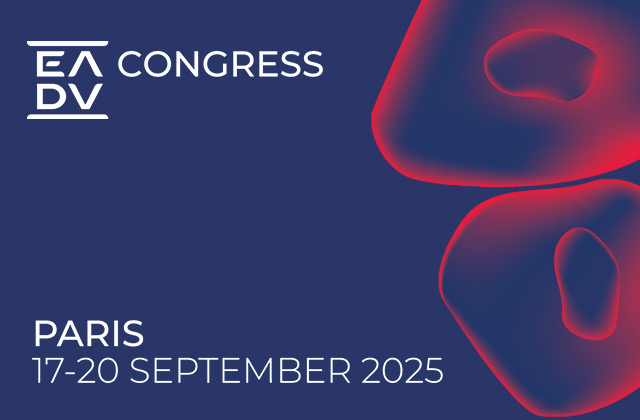
It’s becoming a bit of a tradition around here. Each year, we make some predictions about what we think will happen in the oncology market. Then, after the year has passed, we look back and see whether our crystal ball was on target or if we need to take it back to the crystal ball shop for some repairs.
In this paper, we continue with that tradition, reviewing our predictions for 2022 and commenting on how well we did. This is the first installment in a 2-part series. In the second installment, which will be released in February, we’ll once again turn our gaze to the future and make some predictions for 2023. For now, though, let’s take a look back.
Early last year, we identified five key trends that we predicted would hold sway during 2022. They were:
- Significant broadening of the checkpoint inhibitor market
- Continued growth of radiopharmaceuticals
- Time in the spotlight for allogeneic therapies (in particular, NK-cell directed therapies)
- The emergence of bi-specifics as a competitor to CAR-T therapies
- Growing regulatory scrutiny for oncology medicines
Now, let’s dive a little deeper into each of these predictions and see what happened.
Significant broadening of the checkpoint inhibitor market
In our outlook for 2022, we expressed enthusiasm for the prospects of a significant expansion in checkpoint inhibitors. Unfortunately, the broadening of the checkpoint inhibitor market did not occur to the extent that we had expected. This was largely due to a “stricter” FDA (which we discuss later) and a number of clinical trial disappointments.
A stricter FDA did not allow Eli Lilly’s sintilimab, a PD-1/L1 therapy to enter the US market because its clinical studies only used data from China.[1] We had anticipated the FDA to take a middle path where they would have approved the asset and required post-marketing commitments. However, they appear to have denied an approval path entirely.
Adverse FDA guidance also likely led EQRx to pull back its asset, sugemalimab, from consideration. In its third quarter financial update report, EQRx stated, “Based on recent FDA feedback, EQRx has concluded that there is no commercially viable path for sugemalimab plus chemotherapy in Stage IV NSCLC in the U.S.” However, EQRx is still in discussions with the FDA on an approval pathway for extranodal NK/T-cell lymphoma (ENKTL). [2] [3]
A decision was not made on Coherus Biosciences’ toripalimab due to COVID-19 travel restrictions delaying inspections of the manufacturing site.[4] Although its case is different to the pair cited above, an approval is not guaranteed.
Several clinical disappointments also limited market expansion. Key among them were the challenges with CD47 (partial clinical hold on magrolimab, discussed later) and TIGIT (disappointing results on Roche’s tiragolumab[5] and a lack of significant results on Gilead’s domvanalimab[6]). In addition, the data for Novartis’ TIM3 asset, sabatolimab, was weaker than expected. All hope is not lost for those mechanisms yet, but clinical holds and trial failures have significantly reduced overall enthusiasm.
However it was not all doom and gloom. We did see the approval of a second CTLA4-directed asset, AstraZeneca’s Imjudo® (tremelimumab). It was approved in combination with durvalumab and platinum chemotherapy for 1L metastatic NSCLC.[7] We also saw the approval of the first LAG3 antibody, approved as the fixed dose combination Opadualag™ for metastatic melanoma.[8]
Continued growth of radiopharmaceuticals
In our outlook for 2022, we noted that interest in radiopharmaceuticals has been growing rapidly, as they promise the benefits of radiation therapy, but without all the “collateral damage” typically associated with that approach. We noted a few promising therapies, with much of our attention focused on Novartis’ 177Lu-PSMA-617 (Pluvicto™).
In general, the market advanced as we had expected, albeit with a few hiccups. Pluvicto was approved, becoming the first targeted radioligand therapy for prostate cancer. Pluvicto’s commercial launch was successful, generating $80 million in revenues during the third quarter of the year.[9] While that confirmed market interest, there were some issues that highlight the therapy’s underlying complexity. Production and clinical trials had been halted for a while due to quality issues[10], but were resumed in June.
Pluvicto received a boost when the successful phase 3 PSMAfore study showed “statistically significant and clinically meaningful radiographic progression-free survival (rPFS) in PSMA mCRPC patients, making it the first PSMA-targeted radioligand therapy to show clinical benefit in mCRPC patients before receiving taxane-based chemotherapy.”[11]
Agents earlier in the pipeline continued to advance, though some more slowly than expected. Some of the more interesting developments in 2022 included:
- Early data from nine patients showed very positive experience with another Novartis asset, FAPI-46, a radioligand therapy for advanced-stage solid tumors.[12]
- Bayer executed an agreement to buy Actinium-225 based products from BWXT Medical. These products will enable Bayer to continue advancing its work in radiopharmaceuticals.[13]
- In October, Actinium reported highly positive data in acute myeloid leukemia (AML) for its lead asset, Iomab-B, and began preparing its approval application.[14]
- Clovis Oncology shared promising data for 177Lu-FAP-2286 from the phase I/II LuMIERE study. The therapy “produced a manageable safety profile and promising early efficacy findings in patients with advanced or metastatic tumors.”[15]
- Fusion Pharmaceuticals provided clinical updates on FPI-1434 (for the treatment of solid tumors expressing IGF-1R) and FPI-1966 (solid tumors expressing FGFR3). Phase I studies for both assets experienced start-up delays.[16]
- In addition, Fusion began clinical trials in FPI-2059 for the treatment of solid tumors expressing NTSR1.[17]
Time in the spotlight for allogeneic therapies
Last year, we noted that allogeneic cell therapies had attracted a lot of attention because they bring the promise of efficacy comparable to autologous CAR-Ts but with significantly lower cost of goods sold (COGS) and increased convenience. We also noted that data from allogeneic CAR-Ts in 2021 had been relatively weak and appeared to show challenges with durability.
Despite all that, we were still bullish on allogeneic therapies for 2022. In particular, we noted that there would be a particular focus on therapies using natural killer (NK) cells. We specifically mentioned Fate Therapeutics, Nkarta, and Affimed as leaders in the space.
Fate Therapeutics, however, ran into trouble during 2022. After its latest clinical update, Fate laid off hundreds of employees and trimmed its pipeline. It also terminated its collaboration agreement with Janssen.[18] Fate wasn’t the only company to face challenges with allogeneic therapies. Other examples include Caribou and Adicet:
- Caribou’s first-ever “off-the-shelf CAR-T” showed initial positive results, which partially vaporized when a significant percentage of patients later relapsed. The company is currently enrolling at a second dose level of 80 million CB-010 cells.[19]
- Adicet had similar troubles. Its dataset, shared at ASH in December, showed that an initial response rate of 75% fell to 18% at six months across four dosing levels. This further highlighted concerns about the durability of response to allogeneic therapies.[20]
For Nkarta and Affimed, the news was more positive:
- In April, Affimed shared Phase I/II data for AFM13 that showed a 100% ORR and 62% CRR in 13 patients. Seven of eight CR patients remained in CR after 6.5 months with no cytokine release syndrome (CRS), immune effector cell-related neurotoxicity, or graft vs. host disease (GvHD).[21]
- Also in April, Nkarta reported initial results from studies testing two different blood cancer treatments that use NK cells. With one therapy, eight of 17 patients responded to treatment. With the other, seven of 10 responded. There were no immune or neurological side effects reported.[22]
Overall, we may have been a little too hopeful for major movement in allogeneic therapies in 2022. As it stands now, the future of the space is uncertain. There are some positive results and reason for hope, but the durability question is a big one.
The emergence of bi-specifics as a competitor to CAR-T therapies
In contrast to our predictions on allogeneic therapies, we were very much on the mark when it came to bi-specific antibodies. Bi-specifics were already competing with autologous CAR-Ts in acute lymphocytic leukemia (ALL), and we expected that competition to expand and intensify. In particular, we predicted bi-specifics to emerge as competitors in multiple myeloma (MM), follicular lymphoma (FL), and ultimately in diffuse large B-cell lymphoma (DLBCL). Below is a quick round-up of what came to pass.
In October, the FDA granted marketing approval for Janssen’s teclistamab (TECVAYLI™) in relapsed or refractory MM. The therapy demonstrated a 62% objective response rate (ORR) with a duration of response (DOR) of 90% at 7.4 months.[23]
Just a couple of months later, in December, the FDA granted approval for Genentech’s mosunetuzumab (Lunsumio®) in relapsed or refractory FL. The main efficacy outcome measure was ORR, which was 80%, with 60% achieving complete remission. With a median follow-up of 14.9 months among responders, the estimated median duration of response (DOR) was 22.8 months and the estimated DOR rate at 12 months and 18 months was 62% and 57%, respectively.[24]
In addition, there were a few interesting developments in DLBCL:
- First, in September, Genentech got positive phase II data on glofitamab. The therapy generated a “notable” ORR and complete remission (CR) rate in patients with heavily pretreated, highly refractory LBCL. At a median follow-up of 12.6 months, evaluable patients achieved an ORR of 51.6% with a CR rate of 39.4%. The median time to first CR was 42 days and the 12-month DOCR rate was 77.6%.[25]
- In November, the US FDA accepted for priority review Abbvie’s biologics licensing application (BLA) for epcoritamab for relapsed or refractory LBCL.[26] Data for epcoritamab showed a 63% ORR with a median DOR of 12 months.[27]
- At the ASH meeting in December, Regeneron shared positive pivotal phase II data for odronextamab in patients with relapsed/refractory DLBCL. The therapy demonstrated a 49% ORR in heavily pre-treated patients who were naïve to prior CAR-T, with 31% achieving a complete response. Among patients who had received prior CAR-T therapy, it demonstrated a 48% ORR, with a 32% CR observed in a dose expansion cohort from a Phase 1 trial. Regeneron will use the data from this trial as the basis of planned regulatory submissions in 2023.[28]
In addition, data released in April showed that bi-specific antibodies combined with NK cells showed “very encouraging activity” in patients with heavily pretreated lymphoma. A phase I/II study (NCT04074746) showed that the innate cell engager, AMF13, in combination with preactivated and expanded NK cells, demonstrated an ORR of 89.5% (17 of 19 patients) with 10 CRs and 7 partial responses (PRs).[29] Overall, bi-specifics continue to show promise and offer new hope for patients dealing with a range of challenging cancers.
Growing regulatory scrutiny for oncology medicines
Last year, we indicated that the FDA appeared to be entering into a phase of heightened regulatory oversight in oncology. This observation was spot-on, and happenings throughout 2022 demonstrated the FDA’s more aggressive stance.
One area in which the FDA flexed its muscles was the liberal application of clinical holds. Some examples are listed below.
Checkpoint Inhibitors:
- Partial clinical hold on Gilead’s magrolimab that ran from February to April due to “an apparent imbalance in investigator-reported suspected unexpected serious adverse reactions (SUSARs) between study arms.”[30]
- Partial clinical hold on Alpine Immune Sciences’ NEON-2 trial evaluating davoceticept/pembrolizumab – The hold, which ran from March to May, was prompted by an especially serious adverse event (a fatality) that required further investigation.[31]
- As stated previously, there was the FDA’s refusal to approve Eli Lilly’s sintilimab and negative feedback on EQRx / CStone’s sugemalimab on the basis of China-only data.[32]
Allogeneic CAR-Ts:
- Clinical hold on the IND of Beam Therapeutics’ anti-CD7 CAR-T, BEAM-201 – This hold was lifted in December of 2022. According to Beam, the FDA’s concerns were multi-faceted, but included questions about the company’s gene editing technology.[33]
- Clinical hold on Legend Biotech’s anti-CD4 CAR-T, LB1901 “after low CD4-positive T-cell counts were observed in the peripheral blood of the first and only patient to have been dosed with the investigational product to date” – The hold was lifted in the fall, but the study was halted again only 6 weeks later.[34]
- Clinical hold on Allogene’s allogeneic CAR-T trials from October 2021 to January 2022 – The hold had been due to a chromosomal abnormality in a single patient. Subsequent investigation showed the abnormality to be unrelated to Allogene’s manufacturing or gene editing processes.[35] Of course, this hold—and its subsequent removal—were known to everyone when we wrote our 2022 outlook. However, we include it here because it illustrates the overall trend.
In general, the FDA also increased its scrutiny on accelerated approval pathways. This was prompted, in large part, by the backlash that resulted from the FDA’s accelerated approval of Biogen’s Alzheimer’s medication, Aduhelm™. While this increased scrutiny cuts across therapeutic areas, it has had a significant impact on oncology therapies.[36]
In fact, the FDA is calling for “comprehensive” reform of accelerated approval pathways that would address trial designs, endpoint selection, study populations, and timelines for obtaining data.[37] Congress also got involved during 2022, considering proposals to increase the FDA’s control over accelerated approvals. Specifically, the proposals aim to give the FDA more say in confirmatory trials and a more robust ability revoke approvals for ineffective therapies. For example, the agency would be able to require that confirmatory trials be underway before granting an accelerated approval, and it would have more control over how those studies are conducted. If the confirmatory trials don’t pan out for a given therapy, then the FDA would have an easier time pulling it off the market.[38]
Late in the year, the pharmaceutical industry won some changes in the legislative proposals that are being considered. Lawmakers removed some provisions that pharma had opposed. These included a requirement that product labels disclose the use of an accelerated approval pathway, as well as a provision that would have enabled the FDA to force confirmatory trials. However, the industry lost a measure that would have explicitly given drug companies the ability to use medical claims and insurance data in post-market confirmatory studies.[39]
Parting Thoughts and What’s Coming Next
In summary, we did fairly well with our predictions for 2022. They weren’t perfect, as our expectations for checkpoint inhibitors failed to materialize and our hopes for allogeneic therapies may have flown a bit too high. On the other hand, we think we hit the bullseye when it came to our predictions on radiopharmaceuticals, bi-specifics, and the FDA’s increasing scrutiny.
In any case, the past is the past. We learn from it and move on. So, in that spirit, we’ll focus on the future for our next article. We will outline some key trends to watch and make some predictions for the remainder of 2023.
References:
[1] Tucker, Nichole, FDA Denies Approval of Sintilimab With Chemotherapy for Nonsquamous NSCLC, Targeted Oncology, March 24, 2022, https://www.targetedonc.com/view/fda-denies-approval-of-sintilimab-with-chemotherapy-for-nonsquamous-nsclc
[2] EQRx 3rd Quarter 2022 Report, https://www.sec.gov/Archives/edgar/data/1843762/000110465922116794/tm2230066d1_ex99-1.htm, accessed Jan. 20, 2023
[3] EQRx News Update, https://investors.eqrx.com/news-releases/news-release-details/eqrx-provides-portfolio-and-us-commercial-strategy-updates, Nov. 10, 2022, accessed Jan. 20, 2023
[4] Tucker, Nichole, FDA Decision on Toripalimab for Advanced Nasopharyngeal Carcinoma Pending Due to COVID-19 Travel Restrictions, Targeted Oncology, Dec. 24, 2022, https://www.targetedonc.com/view/fda-decision-on-toripalimab-for-advanced-nasopharyngeal-carcinoma-pending-due-covid-19-travel-restrictions
[5] Sava, Jordyn, SKYSCRAPER-01 Trial Misses Co-Primary End Point of PFS in PD-L1-High NSCLC, Targeted Oncology, May 12, 2022, https://www.targetedonc.com/view/skyscraper-01-trial-misses-co-primary-end-point-of-pfs-in-pd-l1-high-nsclc
[6] Feuerstein, Adam, Gilead, Arcus anti-TIGIT drug reduces risk of lung cancer progression in mid-stage study, STAT News, Dec. 19, 2022, https://www.statnews.com/2022/12/19/gilead-arcus-anti-tigit-drug/
[7] US FDA press release, FDA approves tremelimumab in combination with durvalumab and platinum-based chemotherapy for metastatic non-small cell lung cancer, Nov. 10, 2022, https://www.fda.gov/drugs/resources-information-approved-drugs/fda-approves-tremelimumab-combination-durvalumab-and-platinum-based-chemotherapy-metastatic-non
[8] US FDA press release, FDA approves Opdualag for unresectable or metastatic melanoma, March 18, 20222, https://www.fda.gov/drugs/resources-information-approved-drugs/fda-approves-opdualag-unresectable-or-metastatic-melanoma
[9] Bayer Company Presentation, Q3 2022 Results, https://www.novartis.com/sites/novartiscom/files/q3-2022-investor-presentation.pdf, accessed Jan. 19, 2023
[10] Liu, Angus, Novartis halts US production of cancer radiotherapies, citing potential quality issues, Fierce Pharma, May 5, 2022, https://www.fiercepharma.com/manufacturing/novartis-halts-us-production-radioligand-cancer-therapies-citing-manufacturing#:~:text=Novartis%20has%20temporarily%20stopped%20producing,the%20Swiss%20pharma%20said%20Thursday
[11] Lin, Joy, Novartis’ Pluvicto Continues Winning Streak In Prostate Cancer Indication, Gene Online, July 12, 2022, https://www.geneonline.com/novartis-pluvicto-continues-winning-streak-in-prostate-cancer-indication/
[12] Ferdinandus J, et al, Initial Clinical Experience with 90Y-FAPI-46 Radioligand Therapy for Advanced-Stage Solid Tumors: A Case Series of 9 Patients. J Nucl Med. 2022 May;63(5):727-734. doi: 10.2967/jnumed.121.262468. Epub 2021 Aug 12. PMID: 34385340; PMCID: PMC9051597.
[13] BWXT Medical press release, BWXT Medical Executes Commercial Agreement with Bayer for Supply of Actinium-225 Based Products, June 27, 2022, https://www.bwxt.com/bwxt-medical/news/2022/06/27/BWXT-Medical-Executes-Commercial-Agreement-with-Bayer-for-Supply-of-Actinium-225-Based-Products
[14] Bayer, Max, Actinium’s radiotherapy spooks AML in elderly patients, prompting a sweet tooth for regulatory approval, Fierce Biotech, Oct. 31, 2022, https://www.fiercebiotech.com/biotech/actiniums-radiotherapy-spooks-aml-elderly-patients-prompting-sweet-tooth-regulatory
[15] Conroy, Russ, 177Lu-FAP-2286 Yields Promising Preliminary Anti-Tumor Activity in Advanced/Metastatic Solid Malignancies, CancerNetwork, Oct. 20, 2022, https://www.cancernetwork.com/view/177lu-fap-2286-yields-promising-preliminary-anti-tumor-activity-in-advanced-metastatic-solid-malignancies
[16] Fusion Pharmaceuticals press release, Fusion Pharmaceuticals Provides Updates On FPI-1434 And FPI-1966 Clinical Programs, June 9, 2022
[17] ClinicalTrials.gov, https://clinicaltrials.gov/ct2/show/NCT05605522, accessed Jan. 19, 2023
[18] Fate Therapeutics press release, Fate Therapeutics Announces Termination of Collaboration Agreement with Janssen, Pipeline Prioritization, Next-Generation Programs, and Key 2023 Initiatives, Jan. 5, 2023, https://www.globenewswire.com/news-release/2023/01/05/2584150/0/en/Fate-Therapeutics-Announces-Termination-of-Collaboration-Agreement-with-Janssen-Pipeline-Prioritization-Next-Generation-Programs-and-Key-2023-Initiatives.html
[19] Plieth, Jacob, EHA 2022 – Caribou’s turn to run into allo Car-T relapses, Evaluate Vantage, June 10, 2022, https://www.evaluate.com/node/17926/amp
[20] Plieth, Jacob, Ash 2022 – Adicet has a case of déjà vu, Evaluate Vantage, Dec. 10, 2022, https://www.evaluate.com/vantage/articles/events/conferences-trial-results/ash-2022-adicet-has-case-deja-vu
[21] Affimed press release, AFFIMED PRESENTS UPDATED CLINICAL DATA FROM PHASE 1/2 STUDY OF AFM13 PRECOMPLEXED WITH CORD BLOOD-DERIVED NK CELLS AT AACR ANNUAL MEETING, April 10, 2022, https://www.affimed.com/affimed-presents-updated-clinical-data-from-phase-1-2-study-of-afm13-precomplexed-with-cord-blood-derived-nk-cells-at-aacr-annual-meeting/
[22] Fidler, Ben, Nkarta gives first look at two ‘natural killer’ cell therapies for blood cancer, BioPharma Dive, April 25, 2022, https://www.biopharmadive.com/news/nkarta-leukemia-lymphoma-nk-cell-therapy-results/622594/
[23] US FDA, FDA approves teclistamab-cqyv for relapsed or refractory multiple myeloma, https://www.fda.gov/drugs/resources-information-approved-drugs/fda-approves-teclistamab-cqyv-relapsed-or-refractory-multiple-myeloma, Oct. 25, 2022, accessed Jan. 22, 2023
[24] US FDA, FDA grants accelerated approval to mosunetuzumab-axgb for relapsed or refractory follicular lymphoma, https://www.fda.gov/drugs/resources-information-approved-drugs/fda-grants-accelerated-approval-mosunetuzumab-axgb-relapsed-or-refractory-follicular-lymphoma, Dec. 22, 2022, accessed Jan. 22, 2023
[25] Scott, Ryan, Fixed-Duration Glofitamab Elicits Early, Durable Complete Remissions in Relapsed/Refractory LBCL, OncLive, Sept. 2, 2022, https://www.onclive.com/view/fixed-duration-glofitamab-elicits-early-durable-complete-remissions-in-relapsed-refractory-lbcl
[26] Abbvie press release, U.S. FDA Accepts for Priority Review the Biologics License Application for Epcoritamab (DuoBody®-CD3xCD20) for the Treatment of Relapsed/Refractory Large B-Cell Lymphoma, Nov. 21, 2022, https://news.abbvie.com/news/press-releases/us-fda-accepts-for-priority-review-biologics-license-application-for-epcoritamab-duobody-cd3xcd20-for-treatment-relapsedrefractory-large-b-cell-lymphoma.htm
[27] Abbvie press release, AbbVie and Genmab Announce Topline Results for Epcoritamab (DuoBody®-CD3xCD20) from Phase 1/2 Trial in Patients with Relapsed/Refractory Large B-cell Lymphoma (LBCL), April 13, 2022, https://news.abbvie.com/news/press-releases/abbvie-and-genmab-announce-topline-results-for-epcoritamab-duobody-cd3xcd20-from-phase-12-trial-in-patients-with-relapsedrefractory-large-b-cell-lymphoma-lbcl.htm
[28] Regeneron press release, PIVOTAL ODRONEXTAMAB (CD20XCD3) PHASE 2 DATA IN PATIENTS WITH RELAPSED/REFRACTORY DIFFUSE LARGE B-CELL LYMPHOMA DEBUT AT ASH, December 11, 2022, https://investor.regeneron.com/news-releases/news-release-details/pivotal-odronextamab-cd20xcd3-phase-2-data-patients
[29] Harris, Jason, NK Cells Plus Bispecific Antibody Delivers Strong Results in Advanced Lymphoma, OncLive, April 10, 2022, https://www.onclive.com/view/nk-cells-plus-bispecific-antibody-delivers-strong-results-in-advanced-lymphoma
[30] Virgil, Hayley, FDA Puts Clinical Hold on Trials Assessing Magrolimab/Azacitidine Combo in AML/MDS, CancerNetwork, Feb. 2, 2022, https://www.cancernetwork.com/view/fda-puts-clinical-hold-on-trials-assessing-magrolimab-azacitidine-combo-in-aml-mds
[31] Sava, Jordyn, FDA Lifts Partial Clinical Hold on NEON-2 Evaluating Davoceticept/Pembrolizumab in Advanced Cancers, Targeted Oncology, May 26, 2022, https://www.targetedonc.com/view/fda-lifts-partial-clinical-hold-on-neon-2-evaluating-davoceticept-pembrolizumab-in-advanced-cancers
[32] Liu, Angus, Pfizer partner CStone explores sale as US path blocked, Chinese competition heats up: Bloomberg, Fierce Pharma, July 14, 2022, https://www.fiercepharma.com/pharma/pfizer-partner-cstone-explores-sale-us-path-blocked-chinese-competition-heats-bloomberg
[33] Beam Therapeutics press release, Beam Therapeutics Announces FDA Has Lifted the Clinical Hold on the Investigational New Drug Application for BEAM-201, Dec., 2, 2022, https://investors.beamtx.com/news-releases/news-release-details/beam-therapeutics-announces-fda-has-lifted-clinical-hold
[34] Legend Biotech halts Phase I clinical trial for LB1901, The Pharma Letter, July 11, 2022, https://www.thepharmaletter.com/article/legend-biotech-halts-phase-i-clinical-trial-for-lb1901
[35] Allogene press release, Allogene Therapeutics Announces Removal of FDA Clinical Hold Across All AlloCAR T™ Clinical Trials, Jan. 10, 2022, https://ir.allogene.com/news-releases/news-release-details/allogene-therapeutics-announces-removal-fda-clinical-hold-across
[36] Perrone, Matthew, Speedier drug approvals hit slowdown as FDA faces scrutiny, AP, Dec. 7, 2022, https://apnews.com/article/health-cancer-business-congress-drug-approvals-e029b9f3f72b4282ad39d2d00902edfe
[37] Schneider, Mary Ellen, FDA officials urge ‘comprehensive’ approach to accelerated approval reforms, Regulatory Focus, Sept. 22, 2022, https://www.raps.org/news-and-articles/news-articles/2022/9/fda-officials-urge-comprehensive-approach-to-accel
[38] Sagonowsky, Eric, After Aduhelm controversy, Congress looks to strengthen FDA’s accelerated approval powers: WSJ, Fierce Pharma, June 10, 2022, https://www.fiercepharma.com/pharma/after-aduhelm-controversy-congress-looks-strengthen-fdas-accelerated-approval-powers-wsj
[39] Wilkerson, John, Pharma wins changes in bill regarding FDA’s accelerated approval, STAT News, Dec. 19, 2022, https://www.statnews.com/2022/12/19/pharma-wins-changes-fda-accelerated-approval/






